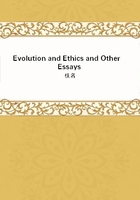
第83章
Bramwell Booth was in the witness-box, I am in a position to give the most unqualified denial to the statement as to the alleged admission on his part of falsehood? Nothing was heard in Court of any such admission. Neither the prosecuting counsel nor the Judge who tried the case ever referred to it, although it would obviously have had a direct bearing on the credit of the witness; and the jury, by acquitting Mr. Bramwell Booth, showed that they believed him to be a witness of truth. But fortunately the facts can be verified beyond all gainsaying by a reference to the official shorthand-writer's report of the evidence. During the hearing of the case for the prosecution, Inspector Borner was interrupted by the Judge, who said:-,"'I want to ask you a question. During the whole of that conversation, did Booth in any way suggest that that child had been sold?' Borner replied:-,"'Not at that interview, my Lord.'
"It was to this that Mr. Bramwell Booth referred when, after examination, cross-examination, and re-examination, during which no suggestion had been made that he had ever made the untrue statement now alleged against him, he asked and received leave from the Judge to make the following explanation, which I quote from the official report:-,"'Will you allow me to explain a matter mentioned yesterday in reference to a question asked by your Lordship some days ago with respect to one matter connected with my conduct? Your Lordship asked, I think it was Inspector Borner, whether I had said to him at either of our interviews that the child was sold by her parents, and he replied "No." That is quite correct; I did not say so to him, and what I wish to say now is that I had been specially requested by Mr. Stead, and had given him a promise, that I would not under any circumstances divulge the fact of that sale to any person which would ma ke it at all probable that any trouble would be brought upon the persons who had taken part in this investigation.' (Central Criminal Court Reports, Vol. CII., part 612, pp. 1,035-6.)
"In the daily papers of the following day this statement was misreported as follows:-,"'I wish to explain, in regard to your Lordship's condemnation of my having said "No" to Inspector Borner when he asked me whether the child had been sold by her parents--the reason why I stated what was not correct was that I had promised Mr. Stead not to divulge the fact of the sale to any person which would make it probable that any trouble should be brought on persons taking part in this proceeding.'
"Hence the mistake into which Professor Huxley has unwittingly fallen.
"I may add that, so far from the statement never having been challenged for five years, it was denounced as 'a remarkably striking lie' in the 'War Cry' of November 14th, and again the same official organ of the Salvation Army of November 18th specifically adduced this misreport as an instance of 'the most disgraceful way' in which the reports of the trial were garbled by some of the papers. What, then, becomes of one of the two main pillars of Professor Huxley's argument?"
In my reply, I point out that, on the 10th of January, Mr. Stead addressed to me a letter, which commences thus: "I see in the 'Times' of this morning that you are about to republish your letters on Booth's book."
I replied to this letter on the 12th of January:-,"Dear Mr. Stead,--I charge Mr. Bramwell Booth with nothing. I simply quote the 'Times' report, the accuracy of which, so far as I know, has never been challenged by Mr. Booth. I say I quote the 'Times' and not Mr. Hodges,because I took some pains about the verification of Mr. Hodges's citation.
This is a slip of the pen. Mr. Hodges had nothing to do with the citation of which I made use.
"I should have thought it rather appertained to Mr. Bramwell Booth to contradict a statement which refers, not to what you heard, but to what he said. However, I am the last person to wish to give circulation to a story which may not be quite correct; and I will take care, if you have no objection (your letter is marked 'private'), to make public as much of your letter as relates to the point to which you have called my attention.
"I am, yours very faithfully, T. H. Huxley."
To this Mr. Stead answered, under date of January 13th, 1891:-,"Dear Professor Huxley,--I thank you for your letter of the 12th inst.
I am quite sure you would not wish to do any injustice in this matter.
But, instead of publishing any extract from my letter, might I ask you to read the passage as it appears in the verbatim report of the trial which was printed day by day, and used by counsel on both sides, and by the Judge during the case? I had hoped to have got you a copy to-day, but find that I was too late. I shall have it first thing to-morrow morning. You will find that it is quite clear, and conclusively disposes of the alleged admission of untruthfulness.
Again thanking you for your courtesy, "I am, yours faithfully, W. T. Stead."
Thus it appears that the letter which Mr. Stead wrote to me on the 13th of January does not contain one word of that which he ways it contains, in the statement which appears in the "Times" to-day.
Moreover, the letter of mine to which Mr. Stead refers in his first communication to me is not the letter which appeared on the 13th, as he states, but that which you published on December 27th, 1890.